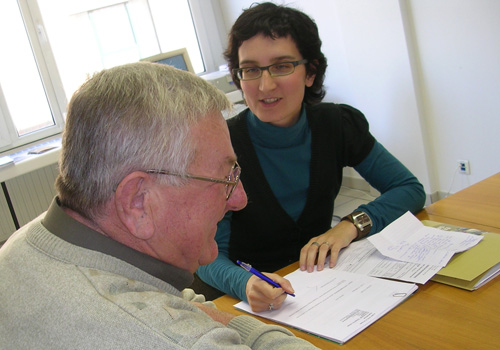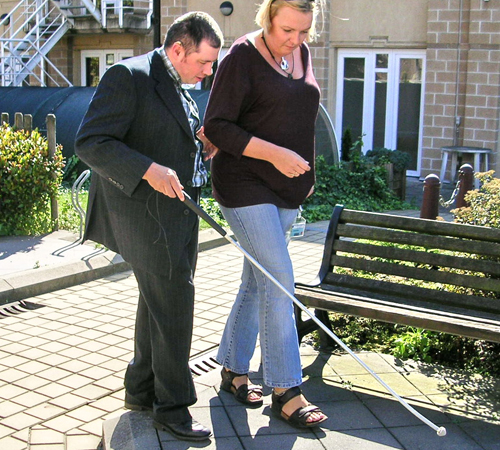Coping from day to day
A blind or partially sighted person gets in touch with the Ligue Braille through Social Services. They team up to review the situation, while the Service offers the person in question information, advice, and support about various concerns, such as benefits, administrative procedures and entitlements. The social workers meet the visually impaired by appointment, at home or at the Ligue Braille premises. They also man telephone hotlines on a regular basis.

Blind and partially sighted people need to be able to lead an independent life as they go about their daily business. This is where the Support Service comes in.
Occupational therapists and other care professionals teach the very many techniques a blind or partially sighted person needs to be able to cook, get dressed, use household appliances, manage a budget, carry out household tasks or look after a baby in complete safety. The service also offers the visually impaired the opportunity to learn Braille and typing in order to be able to communicate with other people and use a computer to send e-mails, scour the Internet for information, write letters and so on.
People with visual impairments have to be able to get about even though to do so is often fraught with problems. A white cane and a guide dog are invaluable tools but they have to be used in an efficient way. The Support Service and dog handlers are available to teach people the right way to go about this.


